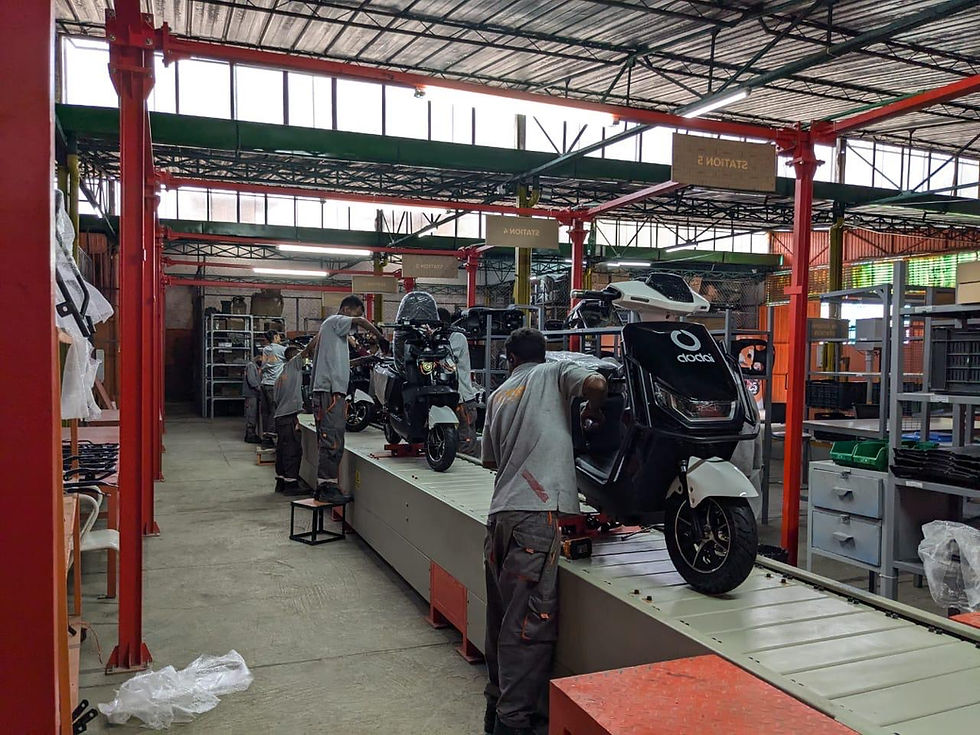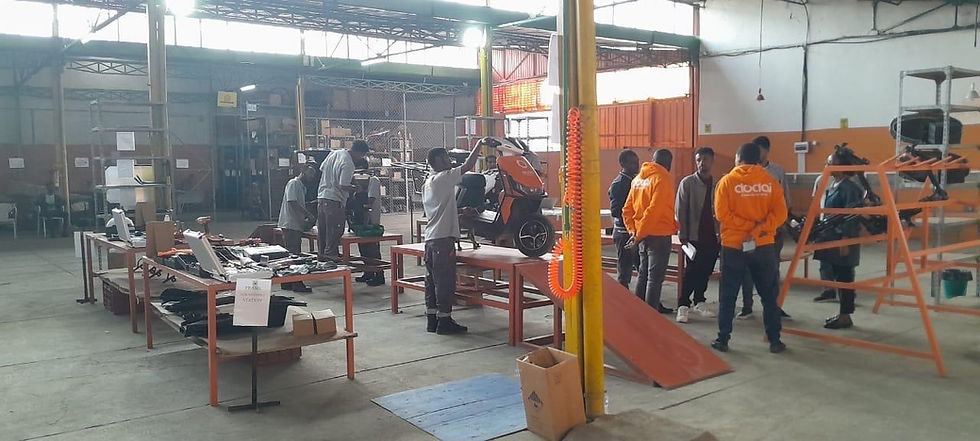The Growth of Electric Vehicles in Ethiopia
Electric vehicle adoption in Addis Ababa, Ethiopia, hopes to solve several roadblocks simultaneously. By introducing electric vehicles into the mainstream, Ethiopia aims to improve air quality, reach climate goals, create jobs, and spur economic development.
The attractiveness of the Ethiopian market to an electric vehicle start-up is obvious. Firstly, a population of 120 million people offers a broad customer base. This, coupled with the economic growth rate of over 7% and fewer competitors compared to other countries in the region, has made EV start-ups in Ethiopia keen to grow their business locally before expanding to neighboring countries. The influx of capital shows encouraging signs of capital investing into Ethiopia more broadly, which the government has encouraged by floating its currency for the first time.

Getting the government involved in this transition may prove to be crucial. By signing a partnership with the sovereign wealth fund of Ethiopia, Ethiopian Investment Holdings, Ethiopian EV start-up Dodai seeks to improve electric vehicle adoption as well as the infrastructure required for further development. This agreement will allow Dodai to combat one of the biggest hurdles to EV development, a lack of charging stations. This partnership will result in 100 battery swap stations being built in Addis Ababa in the following year, reaching 300 total stations across the country by 2028.

In regards to investment, Dodai has thus far received international investment totaling 7 million USD, primarily from Japanese Venture Capital. This capital will be used in several ways, first as a means of expanding the manufacturing facility in Addis Ababa to match the expanding demand. Secondly, this will go towards purchasing raw materials for further production. Lastly, it will hire new people to keep up with the accelerating business. There are several benefits to localized manufacturing, including a rapid feedback loop, which means products can be improved without unnecessary delays. This, along with providing maintenance and repairs locally, improves customer relations.
When speaking to the founder and CEO of Dodai Yuma Sasaki about the expansion, he mentioned another factor that made Ethiopia such an attractive destination for EV companies. A two-year corporate tax exemption and exemptions from import duties demonstrate the government's commitment to encouraging a green transition. Along with these exemptions, Ethiopia has banned the import of gasoline-powered vehicles. This has thus far proved a hurdle for many potential car owners. Still, with the import of more than 100,000 electric vehicles per month and the promise of new power generation, Ethiopia has the potential to be a leader in EV adoption across the continent.
The development of the EV industry in Ethiopia offers significant advantages, apart from cleaner air and reduced emissions. This is perfectly exemplified by the Dodai mantra, "One bike equals one job." Allowing users to enter the gig economy and access jobs in delivery and logistics is critical. Whether through partnerships with the state postal service or food delivery, the economic development provided by EVs is significant. These benefits are passed down to operators, as costs can be 90% lower than diesel alternatives.
Despite challenges from supply chains and concerns regarding charging infrastructure, the EV market will continue to grow in Ethiopia, and the first country to ban the import of non-EVs is betting that the benefits are far greater than environmental.







Comments